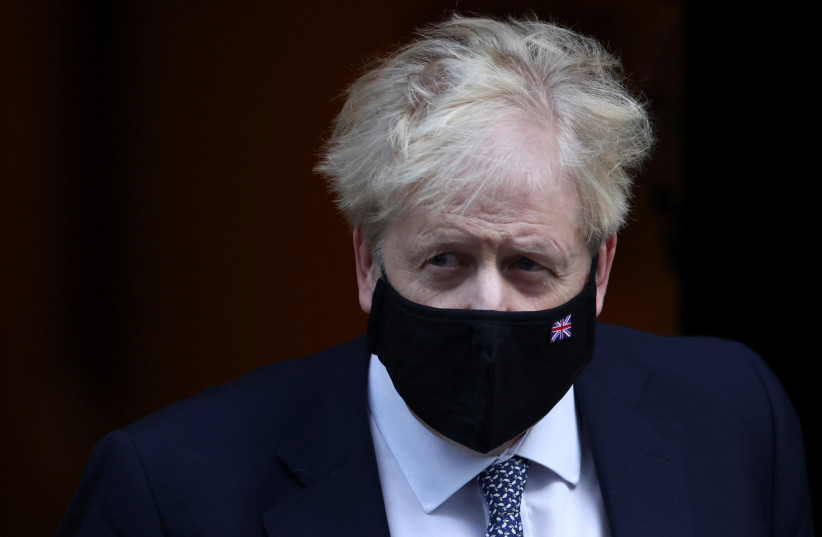During the corona lockdown that then-prime minister Benjamin Netanyahu declared for the 2020 Passover Seder, he violated his own rules by hosting his son Avner for the holiday meal.
Netanyahu faced criticism from politicians and ordinary citizens who did not violate the lockdown and spent the Seder without their loved ones.
Multiply that by several incidents and add a lot more than four cups of wine, and you have what beleaguered British Prime Minister Boris Johnson is going through right now.
Johnson – and the rest of England – are awaiting a report by Second Permanent Secretary Sue Gray about the parties that Johnson hosted at Number 10 Downing Street during pandemic restrictions over the past two years. Downing Street has not denied reports that a party took place at Number 10 the night before Prince Philip’s corona-restricted funeral in April, when indoor gatherings were prohibited.
Most top figures of Johnson’s Conservative Party have been avoiding the media while waiting for the results of the report. For now, Foreign Secretary Liz Truss has said she “backs Johnson 100%.” There are many “Save Boris” WhatsApp groups that have been started, but veteran Tory politician David Davis has called on Johnson to quit, and many MPs may join him when a no-confidence vote occurs after the publication of the report.

In Netanyahu’s Likud, by contrast, public criticism of the leader usually means leaving the party. Yuli Edelstein is the only candidate courageous enough to run against him. Eight other candidates said over the past two weeks that they intended to run for party leader in the post-Netanyahu era, but when Netanyahu rejected a plea agreement, all eight competed in praising the man one of them called “the former and future prime minister.”
Both Netanyahu and Johnson are known as savvy political operators who have gotten out of countless crises before. But both may be nearing the end of the line.
Britain Israel Communications & Research Center CEO Richard Pater said the two populist conservative leaders have plenty more in common.
“There are some similarities with their shared passion for the media, and as would-be master media manipulators,” Pater said. “Both value history and their place in it. They are two elitists who have in their peak galvanized popular support. Boris has always been pragmatic, opportunist and frivolous with his declarations. Bibi traditionally sees himself as an ideologue who places great significance on the importance of the written word.”
Johnson, like Netanyahu, has complained about the physical conditions at the official residence of the prime minister. Johnson got donors to pay for renovations, which is illegal.
They also both have a philandering past but settled down with their third wife.
Netanyahu was protective of the Supreme Court until he got into trouble. Johnson has challenged the establishment throughout his career.
Unlike in Israel and the US, plea bargaining is not routine in the UK legal system. Police probes of politicians are also rarer and avoided there, while here, politicians are actively pursued.
The investigations of Netanyahu and Johnson have increased distrust by the masses.
Both are surely paying attention to the fate of the other. If they again emerge unscathed against all odds, there will truly be a reason for them to uncork a bottle and celebrate.
